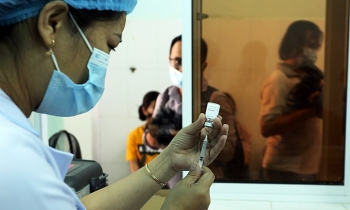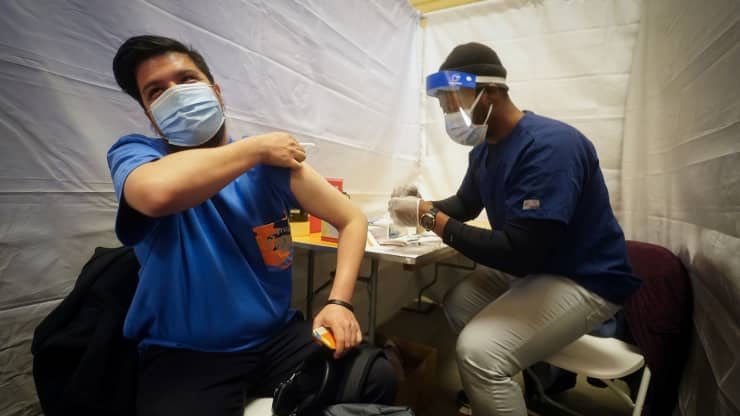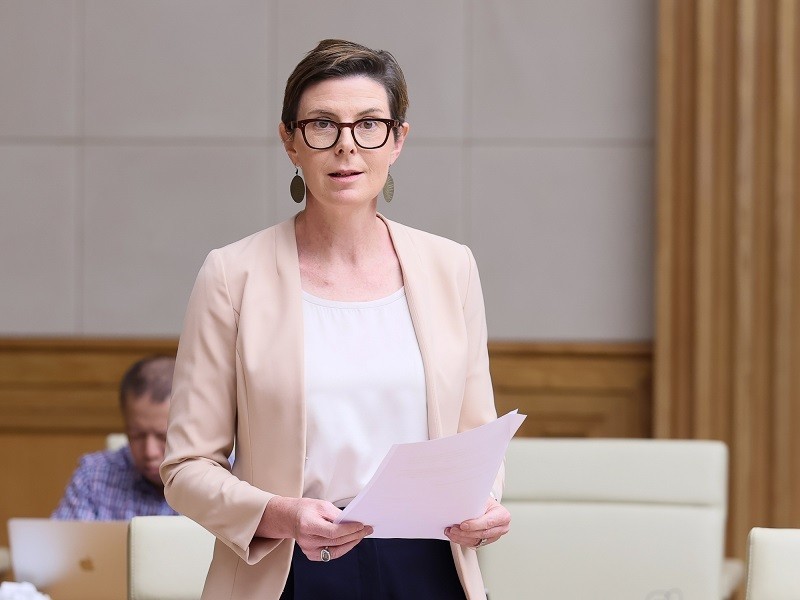People fully vaccinated can stop wearing masks, CDC says
There are a handful of instances where people will still need to wear masks — in a health-care setting or at a business that requires them — even if they’ve had their final vaccine dose two or more weeks ago, CDC Director Dr. Rochelle Walensky told reporters at a press briefing. Fully vaccinated people will also still need to wear masks on airplanes, buses, trains and other public transportation, she said.
“Anyone who is fully vaccinated can participate in indoor and outdoor activities, large or small, without wearing a mask or physical distancing,” Walensky said. “If you are fully vaccinated, you can start doing the things that you had stopped doing because of the pandemic. We have all longed for this moment, when we can get back to some sense of normalcy.”
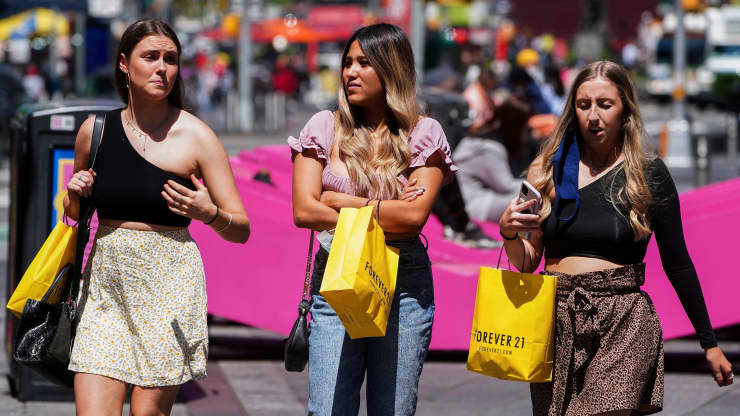 |
| People walk without protective masks in Times Square amid the coronavirus disease (COVID-19) pandemic in the Manhattan borough of New York City, New York, U.S., May 4, 2021. Carlo Allegri | Reuters |
Walensky said unvaccinated people should still continue to wear masks, adding they remain at risk of mild or severe illness, death, and risk of spreading the disease to others. People with compromised immune systems should speak with their doctor before giving up their masks, she said.
She added there is always a chance the CDC could change its guidance again if the Covid pandemic worsens or additional variants emerge, according to CNBC.
The CDC says masks may still be required by state, local, tribal or territorial laws as well as businesses and workplaces. But some local jurisdictions swiftly announced they would update their own regulations to conform with the CDC guidance, and more are expected to follow.
Unvaccinated people "remain at risk" of illness and death, and should remain masked and observe physical distancing, according to NPR.
Speaking in the White House Rose Garden on Thursday afternoon, President Biden said, "Today is a great day for America and our long battle with coronavirus." The president and Vice President Harris both smiled widely and did not wear masks.
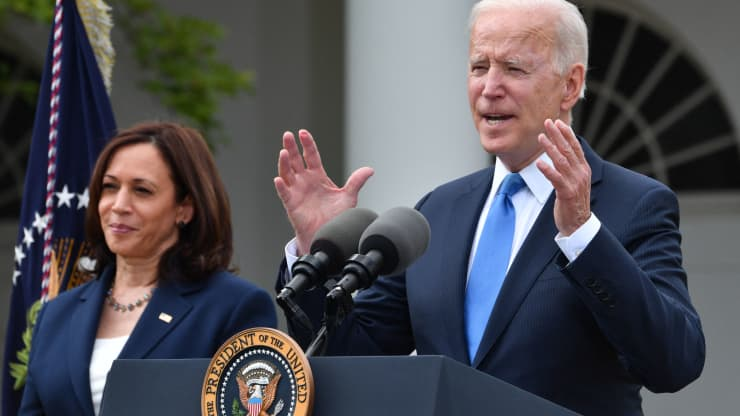 |
| US Vice President Kamala Harris looks on as US President Joe Biden delivers remarks on Covid-19 response and the vaccination program, from the Rose Garden of the White House, Washington, DC on May 13, 2021. Nicholas Kamm | AFP | Getty Images |
"I think it's a great milestone, a great day," Biden said. "It's been made possible by the extraordinary success we've had in vaccinating so many Americans so quickly."
He praised the American people for how much they had endured since the beginning of the pandemic, including lost jobs and missed life events, and particularly the more than 580,000 lives lost to COVID-19.
Biden emphasized that the new rules only apply to those who are fully vaccinated. People are considered fully vaccinated two weeks after receiving the second dose of the Pfizer or Moderna vaccines, or two weeks after the single dose of the Johnson & Johnson shot.
Those not fully vaccinated should still wear a mask, the CDC said.
"We've gotten this far. Please protect yourself until you get to the finish line," Biden said. "Get vaccinated or wear a mask until you do."
“We need to stay diligent about wearing face masks”, health experts said
Namandje Bumpus, Ph.D., an expert in pharmacology and molecular science, says a simple rule of thumb can work for planning: “Unvaccinated guests should be from one household only.” She stresses that indoor gatherings, even small ones, with unvaccinated people from multiple households call for the same precautions you would take in public: wearing masks and physical distancing.
“Even among a few people, the virus can spread, and we strongly recommend against people from multiple households getting together without these precautions if some are unvaccinated.”
Until enough people have been vaccinated, public COVID-19 precautions are still important, even for fully vaccinated people. Although mask-wearing is now optional for fully vaccinated people who are outdoors and maintaining physical distancing, masks and physical distancing should be the rule at schools, restaurants, bars, gyms and other places where people gather, as well as public transportation, Bumpus notes.
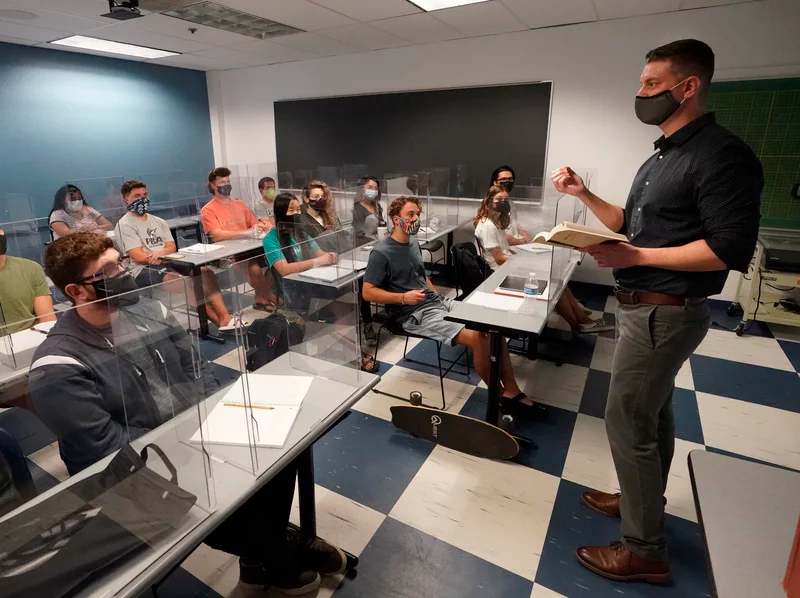 |
| The CDC announced Thursday that fully vaccinated people can safely stop wearing masks indoors and outdoors. Kyle Faircloth teaches a class at Palm Beach Atlantic University in West Palm Beach, Fla., in February. Wilfredo Lee/AP |
“People who have been fully vaccinated can feel safer when they are out among other people,” says Bumpus, “but we need to stay diligent about wearing face masks and practicing physical distancing.”
The reason? The coronavirus vaccines can prevent you from becoming seriously ill with COVID-19. But even if you have been vaccinated you might still be able to pick up the coronavirus, harbor it in your body without any symptoms (asymptomatic infection) and pass it to another person. Until more is known about how likely a vaccinated person is to spread the coronavirus to others, precautions are essential.
Answers are definitely on the way: Bumpus says current studies are monitoring vaccinated people and testing them to see if they are less likely to infect others.
In the meantime, wearing your mask and maintaining physical distancing from others when you are in public places protect you from possibly infecting those who have not yet received their vaccines.
“Although every day, more people receive COVID-19 vaccines, many others have not yet been able to get them. Access to the vaccinations is still an issue,” Bumpus says. Once a large enough majority of people is vaccinated, it still might take a while before life returns to a pre-pandemic level of ease and freedom.”
“We might need to maintain some safeguards for a while as we watch what happens with any currently circulating coronavirus variants,” she says. “We need to take the time to get the facts and figure out each step at a time. A measured approach is essential.”
So far, Bumpus explains, the COVID-19 vaccines offer at least some protection from the circulating coronavirus variants. Even if a vaccinated person catches a variant, they are likely to get a less serious case of COVID-19, John Hopkins Medicine reported.
She adds that coronavirus vaccines protect not only individuals, but also the community at large. She explains: “The more people who are vaccinated for the coronavirus, the fewer infections will happen, and fewer infections mean fewer chances for the coronavirus to mutate.”
“I think the biggest issue right now in addressing the pandemic is the importance of vaccination in limiting the number and prevalence of infections and the emergence of new variants. A great thing is that these vaccines are nimble: We can modify them [to accommodate mutations]. Even though these variants are not fully understood, we have science on our side in addressing them,” she says.
“Precautions need to be continued” – Dr. Katherine O’Brien, WHO
In a science conversation, Dr. O'Brien said people need to take precautions, even after being vaccinated.
"The vaccines that we have right now are all two-dose vaccines. After the first dose, we see a good immune response that kicks in within about two weeks of that first dose. And it's really the second dose that then boosts that immune response and we see immunity get even stronger after that second dose, again within a shorter period of time after after the second dose. We don't know yet how long immunity lasts from the vaccines that we have at hand right now. We're following people who have received vaccinations to find out whether or not their immune response is durable over time and the length of time for which they're protected against disease. So we're really going to have to wait for time to pass to see just how long these vaccines last.", She said.
Precautions and face masks are still essential, in order to prevent possible infections as the scientists are still learning about the affect of Covid-19 vaccines on the virus.
So, we really need to continue these precautions while we're still learning about what the vaccines can do. Can they protect against getting infected and transmitting to someone else? And right now, we're in a situation where there's still very broad transmission in many countries, the transmission is just out of control. And so for how long we need to continue these precautions is really going to depend on what communities and countries can do to really crush this virus, to crush the transmission. And in that way, the vaccines can do their their best job at preventing disease. But remember that we don't actually have the evidence yet for using the vaccine in some age groups. We don't have the evidence for use of vaccines in children, for instance. So for the time being, those age groups are going to continue to be at risk of both disease and infection and being able to transmit to other people. The second reason is that the vaccines are in short supply, so we don't have enough vaccine yet out in the community to protect everybody. Those are the reasons why we have to continue the precautions, especially the masking, the physical distancing, the hand washing and not gathering in big groups. For how long we need to continue those those interventions? Time is going to tell. Once we get broad vaccination coverage in the community, when we know more about what the vaccine can actually do to prevent infection, and we can slowly start taking our foot off the pedal of these other interventions and make sure that the transmission, again, doesn't start to escalate again.", Dr. O'Brien said.
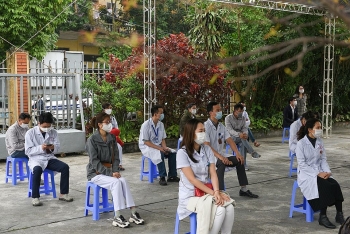 | WHO reviewing Vietnam proposal to produce Covid-19 vaccines The World Health Organization (WHO) said on Wednesday it was reviewing a proposal by one manufacturer in Vietnam to become an mRNA-based COVID-19 vaccine technology ... |
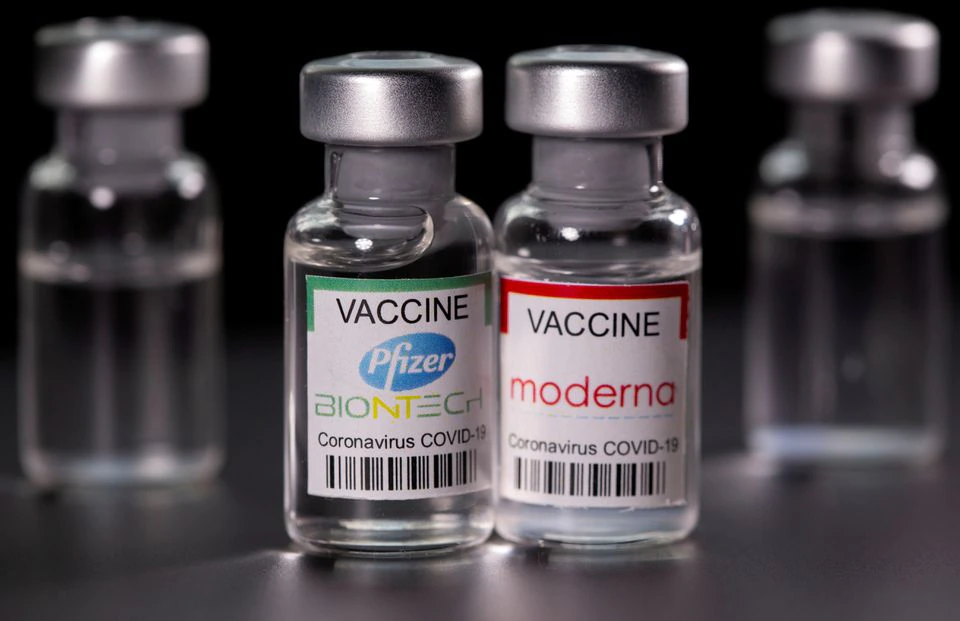 | Top scientists uncertain about the need for Covid-19 booster shots Covid-19 vaccine developers are planning to do yearly booster shots and new vaccines to tackle new coronavirus variants, but the questions made by top scientists ... |
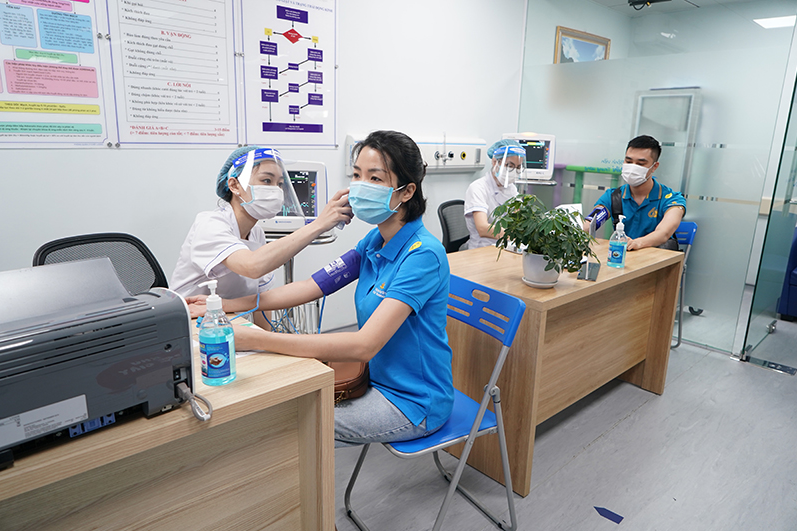 | Vietnam Airlines' staff and attendants to be vaccinated against Covid-19 Vietnam Airlines is Vietnam's first air carrier to vaccinate all its flight and ground crew in order to prevent the pandemic. |
Recommended
 World
World
Pakistan NCRC report explores emerging child rights issues
 World
World
"India has right to defend herself against terror," says German Foreign Minister, endorses Op Sindoor
 World
World
‘We stand with India’: Japan, UAE back New Delhi over its global outreach against terror
 World
World
'Action Was Entirely Justifiable': Former US NSA John Bolton Backs India's Right After Pahalgam Attack
 World
World
US, China Conclude Trade Talks with Positive Outcome
 World
World
Nifty, Sensex jumped more than 2% in opening as India-Pakistan tensions ease
 World
World
Easing of US-China Tariffs: Markets React Positively, Experts Remain Cautious
 World
World


